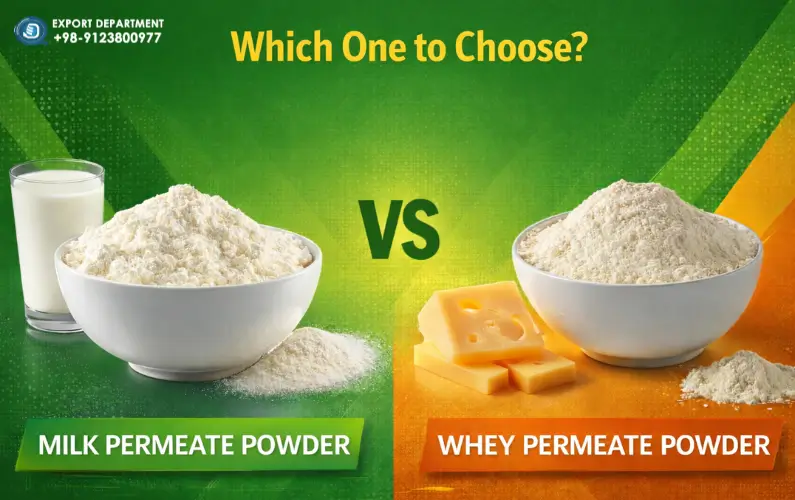The Use of Industrial-Grade Milk Powder in the Cosmetics Industry
Milk powder, one of the essential raw materials in the food and health industries, has garnered attention across various sectors due to its nutritious compounds and biological properties. Containing proteins, fats, and minerals, milk powder plays a significant role in nourishing and protecting the skin and hair. This ingredient is not only used in food products but also in cosmetics to help maintain the health and beauty of skin and hair.
Industrial powdered milk and its use in cosmetics and health industries
Industrial powdered milk is a rich source of milk fats, proteins, and sugars, all of which are highly beneficial for the skin. These ingredients work together to moisturize, nourish, and soothe the skin, helping to improve its texture and softness.
What is whole milk powder?
Whole milk powder is a versatile ingredient widely used in the cosmetics industry for its exceptional skin-softening properties. This dried form of liquid milk retains all the essential nutrients while significantly reducing the water content, resulting in a concentrated powder with numerous benefits for skincare applications.

Applications in skincare products
Whole milk powder's emollient properties help improve skin texture and retain hydration by filling in small cracks and imperfections, making it an excellent choice for a variety of skincare products, such as lotions and creams.
Composition and Benefits of Industrial Powdered Milk in the Cosmetics and Health Industries
Milk fats create a protective barrier on the skin's surface, preventing water loss through the epidermis and maintaining optimal hydration levels. Proteins provide essential amino acids that support skin structure and promote cell renewal, while natural sugars act as humectants, absorbing and retaining moisture.
Active compounds in powdered milk
Dry milk contains compounds that are highly beneficial for the skin, including:
- Milk proteins: These proteins have softening properties and help strengthen skin texture. Milk proteins, such as casein and whey, are rich in amino acids that nourish and repair skin cells.
- Fats and lipids: The fats in powdered milk act as moisturizing agents and help prevent the skin from drying out.
- Vitamins and minerals: Vitamins A, B, D, and calcium help regenerate cells, strengthen the skin's immune system, and prevent signs of premature aging.
The benefits of using powdered milk in cosmetic products
- Natural moisturizer: Due to its fatty compounds, industrial dry milk helps preserve the skin's moisture, leaving it soft and supple.
- Anti-aging: Proteins in powdered milk help stimulate collagen production, which can reduce wrinkles and other signs of aging.
- Gentle exfoliation: Dry milk can act as a natural exfoliator, helping to remove dead skin cells.
- Nourishing and rejuvenating the skin: The nutrients in powdered milk deeply nourish the skin, providing it with a fresh, revitalized appearance.
Applications of powdered milk in various products
-
Moisturizers: Dry milk is used in moisturizing creams to help hydrate and retain skin moisture.
-
Face masks: Face masks containing powdered milk nourish and clarify the skin.
-
Shampoos and conditioners: Milk proteins help strengthen and repair damaged hair, making them a common ingredient in shampoos and conditioners.
-
Anti-wrinkle and restorative products: Dry milk, with its restorative properties, is used in the formulation of anti-wrinkle creams and anti-aging products.
Who can use whole milk powder?
Whole milk powder is generally suitable for all skin types, including sensitive skin, due to its gentle and nourishing properties. However, individuals who are allergic to milk or dairy products should avoid using products that contain whole milk powder. Additionally, pregnant and lactating women can usually use products containing whole milk powder without any restrictions; however, it is recommended to consult a healthcare professional before using any new product.
Possible side effects
Side effects and reactions caused by the topical use of whole milk powder can vary from person to person. Some possible side effects include:
-
Skin irritation or redness
-
Allergic reactions, such as hives or itching
-
Contact dermatitis
-
Dry or flaky skin
If any of these side effects occur while using whole milk powder or a product containing it, stop using it immediately and consult a healthcare professional.
Comedogenicity evaluation
Comedogenicity refers to the potential of cosmetics to cause comedones, such as blackheads and whiteheads. This feature is particularly important for individuals with acne-prone skin. Whole milk powder has a comedogenic rating of 2, indicating a moderate potential to clog pores.
Conclusion
Due to its nutritious ingredients and biological properties, powdered milk plays an effective role in improving the health and beauty of the skin and hair. As a valuable ingredient in cosmetic products, it helps moisturize, rejuvenate, and protect the skin.
Whole milk powder is primarily used as a skin emollient in cosmetic formulations, helping to moisturize and nourish the skin. While it may not be as popular as some other moisturizing agents, it has an established place in contemporary cosmetic formulations, especially in products designed for skin nourishment.

.svg)
-min.webp)


.webp)